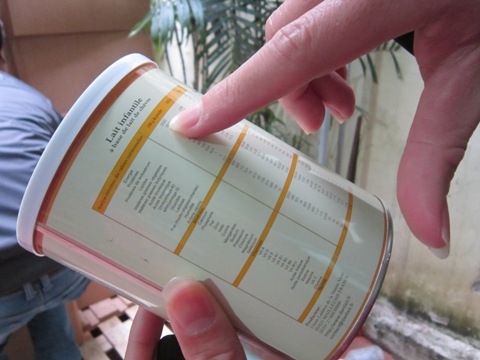Loopholes exist, businesses dodge laws, management agencies powerless
Loopholes exist, businesses dodge laws, management agencies powerless
Despite a lot of efforts, the watchdog agencies still fail to control the formula prices. The market remains chaotic because of low quality products and sky high prices.

A wave of indignation has been raised among consumers who have found out that the sale price of a kind of formula imported from France is 3-4 times higher than the cost price.
Meanwhile, other formula brands have also raised their product prices by another 10-15 percent after raising the prices many times before.
The Ministry of Industry and Trade, which conducted a survey on the formula prices in Vietnam and other regional countries, has found out that Vietnamese consumers have to pay 20-60 percent higher than Thai, Malaysian, Indonesian, Singaporean, South Korean consumers. In some cases, the price gaps are 100-150 percent.
Especially, there always exist a big gap between the import prices and retail prices. The gap is 242 percent for Enfa Grow A+ of Mead Johnson, 285 percent for Dugro Gold of Dumex, while the gaps of 220-246 percent have been reported for Gain, Pedia Sure, Ensure of Abbot.
Meanwhile, price experts have affirmed that there is no reason for formula manufacturers to raise the sale prices. The material price has been unchanged for the last many months, while the input costs have been stable. A kilo of full cream milk is imported at VND90,000, while skimmed milk is VND80,000. A 900g box is believed to have the cost price of VND120,000-130,000, while the retail price is VND250,000-510,000.
The representative of Mead Johnson brand, explaining the 10 percent price increase, attributed to the changes in the package design, affirming that this is not because of the input cost increases. Dumex has also given the same explanation.
In fact, the reason has been many times cited by formula distributors to explain their decisions on raising retail prices. However, analysts said this is just a trick played by the distributors to raise the sale prices without legitimate reasons.
Under the Price Law, from January 1, 2013, enterprises have to report to the watchdog agencies about any adjustments to the prices of the formula products for under-6-year-old children. As for other products, the watchdog agency only controls over the price posting to ensure that the products as sold at the posted prices.
Therefore, distributors have changed their products from “milk powder” to nutrient food, or supplement food in order to report the price adjustments to the watchdog agencies.
As a result, the management agencies cannot examine to find out if the price adjustments are acceptable and reasonable. Anfalac A+ for 0-6 months old children, or Anfakid A+ for 3-year-old children and higher, for example, show on the packs that they are nutrient products.
Meanwhile, formula distributors explain that the changes in the names of milk products have been approved by the Ministry of Health. The milk products, especially for small children of less than six months should be considered “supplement food,” while breast milk should be the main source of nutrition for children.
In this case, there exist the disagreement between the Ministry of Health and the Ministry of Health, which has put consumers at a disadvantage.
Experts have also pointed out the unreasonable things in the current management mechanism. The Ministry of Industry and Trade is in charge of controlling the market, while the Ministry of Finance in charge of controlling the prices. Meanwhile, there always exists a close link between the market and the price of products.
vietnamnet, An Ninh Thu Do


























